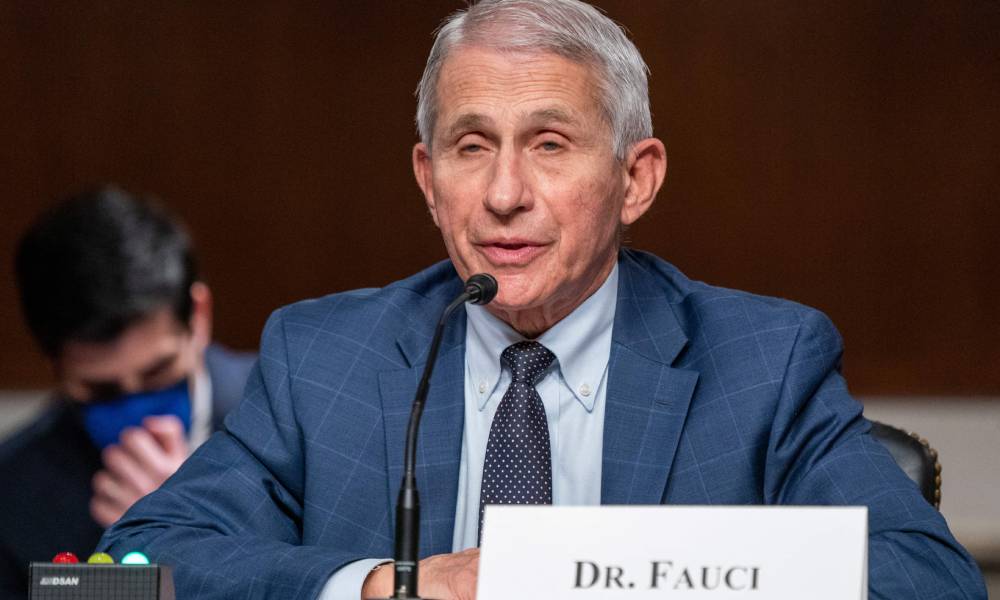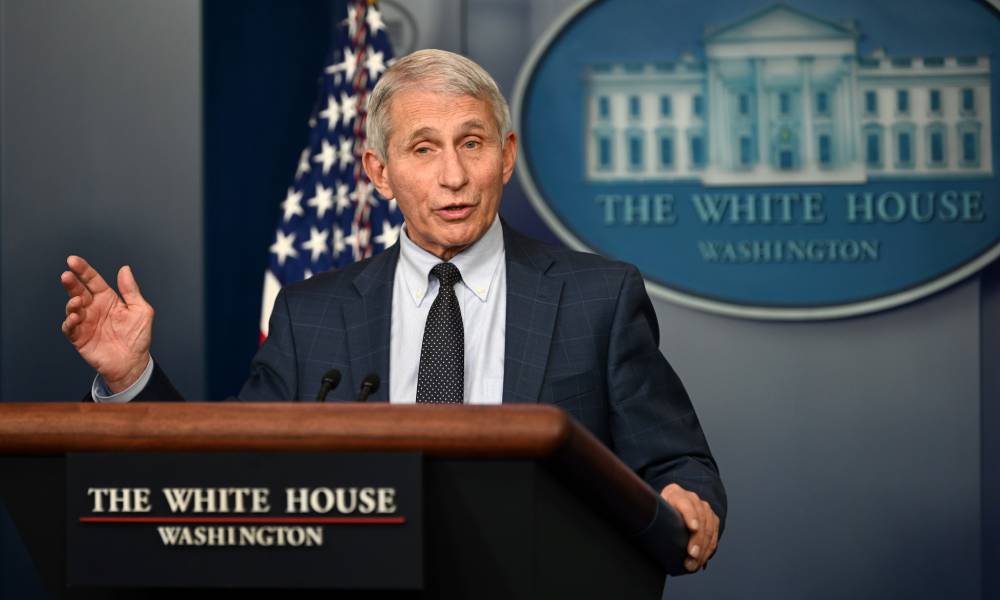Anthony Fauci says the “lessons we learned from HIV” about listening to the LGBTQ+ community are helping the fight against monkeypox. (Chen Mengtong/China News Service via Getty)
Dr Anthony Fauci has pleaded with health officials to listen to and work with the LGBTQ+ community in the wake of the global monkeypox outbreak.
More than 1,000 monkeypox cases across 29 countries have been reported to the World Health Organization (WHO) in the current outbreak, which began in May. In the USA, the Centers for Disease Control and Prevention (CDC) reported Wednesday (8 June) that there were 40 confirmed cases of the virus across 14 states and in Washington DC.
The latest outbreak of the virus has disproportionately affected gay, bisexual and queer men in the UK, US and other countries. At the same time, there has been a horrific rise of reports vilifying queer men, similar to what the community faced during the HIV and AIDS crisis in the 1980s.
Anthony Fauci is the director of the National Institute of Allergy and Infectious Diseases (NIAID) at the US National Institutes of Health and has been involved as an HIV and AIDS researcher since the virus was recognised in 1981.
He told the Independent his experience working during the AIDS crisis strengthened his belief that health experts must work directly with the LGBTQ+ community and other marginalised communities to provide proper care during the monkeypox outbreak.
“Had the world understood that in the very early years of HIV, I think there would have been a lot more information exchanged in a way that is productive, and that could have saved lives… the lessons we learned from HIV helped us with COVID, and the lessons we learned from HIV are helping us with monkeypox,” Fauci said.

Anyone can get or spread monkeypox, but the CDC said early data suggests that gay, bisexual and queer men make up a “high number of cases”. WHO said in its update that those diagnosed with the virus are “mainly, but not exclusively, men who have sex with men”.
Dr Anthony Fauci said the job for health officials and government agencies is to consider how experts can “alert the LGBTQ community” while taking care not to generate or reignite “stigma, which we worked so hard to put aside”.
He said: “That we make sure they know there’s a threat out there — not only the people at risk, but also the physicians that care for them, so that they don’t miss diagnoses and think it’s secondary syphilis or herpes…
“That’s when you embrace the community and ask ‘what is the best way to do that?’
“Rather than what would happen decades ago, when you had a bunch of people in high places in science and public health and regulation, making decisions about how to engage the community.
“You engage the community from day one, which is what we’re doing right now.”
Health experts have stressed that monkeypox is in no way a “gay disease”, and the United Nations has condemned media coverage of the outbreak that officials described as “homophobic and racist”.
The Taliban has even used monkeypox as an “excuse” to attack and detain LGBTQ+ people in Afghanistan, two gay men who live in Kabul told PinkNews.
Monkeypox is not sexually transmitted but is primarily spread through close contact. The UK Health Security Agency (UKHSA) has said the risk to the UK population “remains low” and not a single infected person has died.
Symptoms usually begin with a high temperature, headache, muscle aches, swollen glands, shivering and exhaustion, according to the NHS.
A characteristic rash develops within a couple days after the first symptoms. The rash starts with small raised sports, which turn into small blisters.

The UKHSA has advised individuals with “possible, probable or confirmed monkeypox” should “abstain from sex while symptomatic, including the period of early symptom onset, and while lesions are present”.
“Whilst there is currently no available evidence of monkeypox in genital excretions, as a precaution, cases are advised to use condoms for eight weeks after infection and this guidance will be updated as evidence emerges,” the UKHSA said.
Those with monkeypox symptoms should avoid all other close contact “until their lesions have healed and the scabs have dried off”.
Dr Anthony Fauci thought there’s been a “major step in the right direction” as doctors and scientists have largely taken lessons away from the AIDS crisis. He added more people in the health community are “understanding the entire concept of a trans person and how we need to integrate that into society, and accept it for what it is”.
“Sometimes when people don’t understand things, they pull away from it,” Fauci said. “And the more you try and understand, the more you accept.”
He added: “It was sort of the same thing back in the early 80s… when you listen, you realise it makes perfect sense.
“And I think it’s the same thing with acceptance for the totality of the LGBTQ community.”
